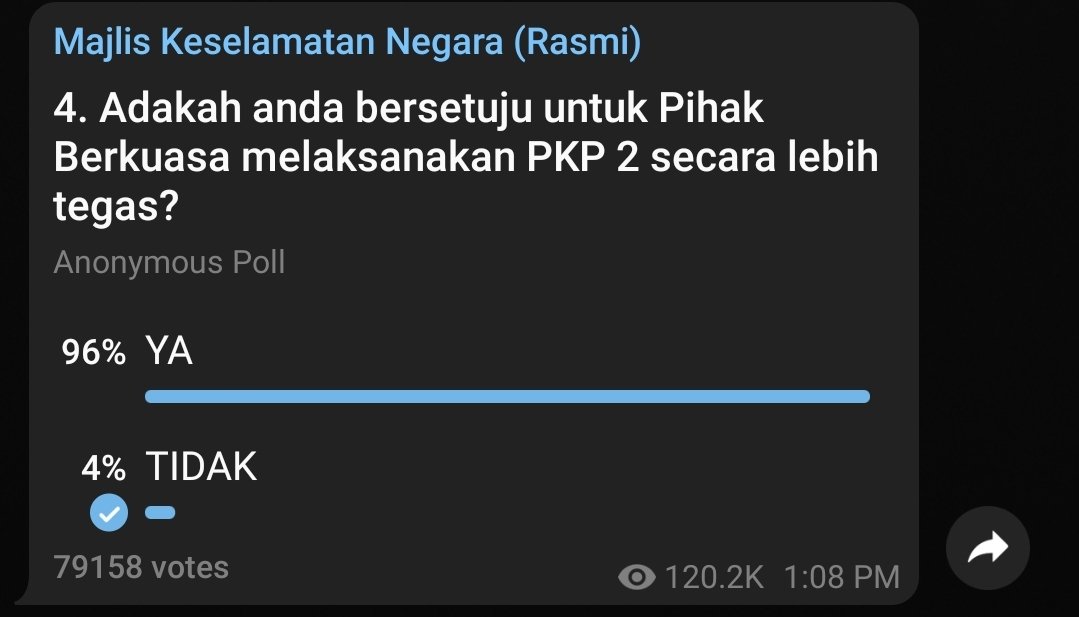Research and advocacy of progressive and pragmatic policy ideas.

Being Tough and Being Just During the Covid-19 MCO
A call for fair and proportionate responses towards Movement Control Order (MCO) offenders.
By Jia Vern Tham & Nelleita Omar10 April 2020
On April 8 in Terengganu, two labourers were sentenced to a month in jail for violating the Movement Control Order (MCO) as they were unable to pay the RM1,000 fine. Earlier this month, on April 3, two unemployed men in Perak were sentenced to three months in jail by the Sungai Siput Magistrate Court for being outside fishing during the MCO, despite their reason which was to feed their family.*
*On April 8, the Taiping High Court reduced their jail sentences to community service — a decision that has been celebrated.
To control the spread of the virus in the second phase of the MCO, “tougher and sterner action” was promised by Defence Minister Datuk Seri Ismail Sabri and stricter MCO rules have been announced. As Malaysia enters its fourth week of MCO, tougher enforcement has been followed by a consistent stream of news reports on MCO-related arrests, fines, or jail sentences across the country.
Is being ‘tough’ the same as being ‘just’?
In a world of unprecedented restrictions during the Covid-19 pandemic, countries such as India, Kenya, Paraguay, and more are seeing uneven policing tactics, ranging from humiliation to outright violence against perceived offenders.
In Malaysia, reports and viral videos of those deemed as ‘stubborn’ MCO offenders have been making rounds since the order began. There have been reports of MCO offenders being made to do push-ups, being whipped, and other disparate sentences.

Source: Sinar Harian
The arbitrary punishments have garnered criticism from lawyers and civil society organisations alike. Nevertheless, some segments of the public have voiced their support for humiliation tactics as an ‘effective’ way to enforce the MCO.
A recent Telegram poll by the National Security Council (NSC) appear to support this sentiment – a whopping 96% of the nearly 80,000 respondents were in favour of the authorities taking a ‘tougher’ stance in enforcing the MCO Phase 2.

However, a vote for a ‘tougher’ stance is not as clear-cut as it seems. Based on The Centre’s recent Twitter polls on April 8, only 12% of respondents thought jail sentences are the most appropriate punishment for MCO violations. 58% of respondents were in favour of community service, outweighing the 24% who were in favour of fines.

Moreover, when given a probable scenario of an MCO violation, nearly 86% of respondents agreed that offenders should be given a lighter sentence based on the case facts of motive and income background.

What are the existing penalty provisions that can be used against MCO offenders?
(a) Under Section 186 of the Penal Code, any MCO offender found guilty of voluntarily obstructing a public servant in discharging his public functions is liable to imprisonment of up to two years, a fine up to RM10,000, or both.
(b) Under Section 269 of the Penal Code, any MCO offender found guilty of unlawfully or negligently performing an act that is likely to spread a disease dangerous to life is liable to a maximum jail time of six months, a fine, or both.
(c) Under the Prevention and Control of Infectious Diseases (Measures Within the Infected Local Areas) Regulations 2020, a person could face a fine of up to RM1,000, a jail term of up to six months, or both.
(d) Under the Infectious Disease Prevention and Control Act 1998, first-time offenders could face a fine of up to RM1,000, a jail term of up to two years, or both. Repeat offenders could face up to five years, a fine, or both; as well as an additional fine of RM200 for every day involved in a continuing offence.
The need for a fair and proportionate response
In what appears to be an attempt at limiting uneven policing tactics, PDRM announced on April 8 that compound notices with a RM1,000 fine will be issued to MCO violators. According to Comm Datuk Seri Acryl Sani Abdullah Sani, offenders who fail to pay the compound amount will be tried in court.
The amount of this fine, the court process, and the possibility of more punitive sentencing will clearly affect those from lower income groups more than the affluent. While the Perak fishing duo have had their sentences reduced to community service, will there be proportionality and fairness for others?
Prominent lawyer groups including Lawyers for Liberty and Sabah Law Society have pointed out the lack of appropriate and clear sentencing guidelines when it comes to rulings on MCO violations.
Apart from clear sentencing guidelines, we also advocate proportionality and fairness in sentencing that takes into account mitigating factors, including weighing the sharp loss of livelihoods and mental health strain caused by the MCO. The current penalties of fines or jail terms are too one-size-fits-all in nature.
These penalties are also too punitive. Alternative measures such as community service or counselling should be considered as the starting penalty, particularly for first-time offenders. We echo the Bar Council’s position on resorting to tougher measures only when there is “real defiance by those who ignore repeated advice” to stay at home.
We are living in tough times, and ‘tougher’ measures that aim to make examples of MCO offenders and deter the general public seem to be taking precedence at the moment. However, being tough does not mean that fairness and justice need to be sacrificed. We urge for proportionate penalties and fair sentencing that takes into account particular hardships of these unprecedented times.
The Centre is a centrist think tank driven by research and advocacy of progressive and pragmatic policy ideas. We are a not-for-profit and a mostly remote working organisation.



